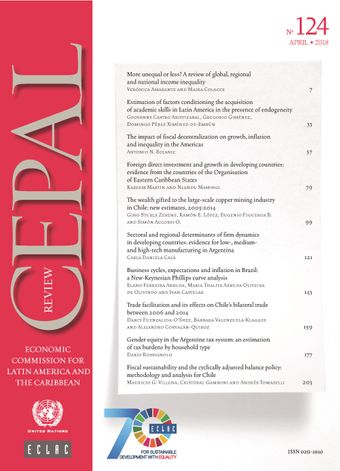-
Gender equity in the Argentine tax system: An estimation of tax burdens by household type
- Source: CEPAL Review, Volume 2018, Issue 124, Oct 2018, p. 177 - 202
- Spanish
-
- 04 Oct 2018
Abstract
The purpose of this paper is to introduce the gender dimension into the analysis of tax incidence in Argentina. To that end, the impact of direct and indirect taxes on income and distribution by gender is calculated to establish the progressivity of taxes and the effects on gender equity when household classifications are analysed. The findings show that while the tax system is moderately progressive and the heaviest burden falls on households with male breadwinners, differences emerge when the impact of indirect and direct taxes is considered separately. The indirect tax system is heavily regressive and female-breadwinner households bear the largest burden, since they are concentrated in the lower income brackets. Households with children bear the highest direct tax burden, particularly male-breadwinner and dual-earner households.





